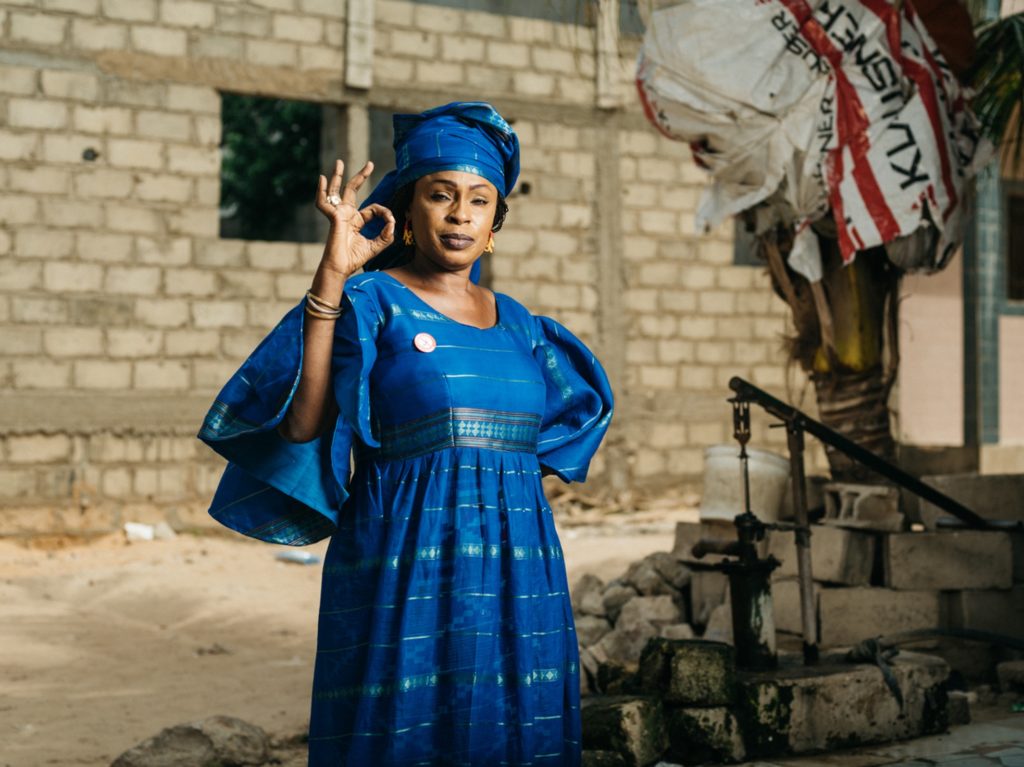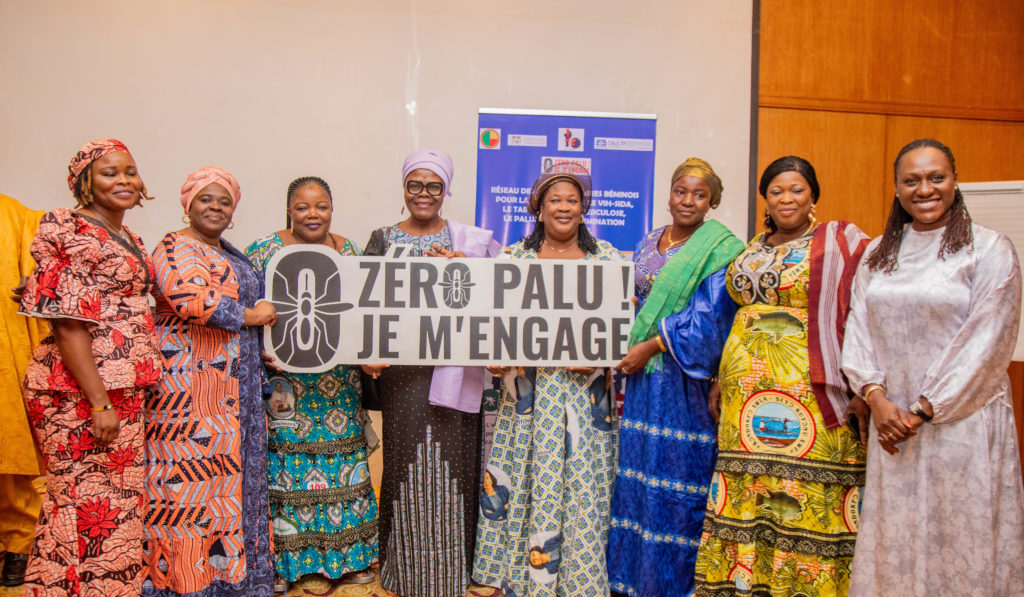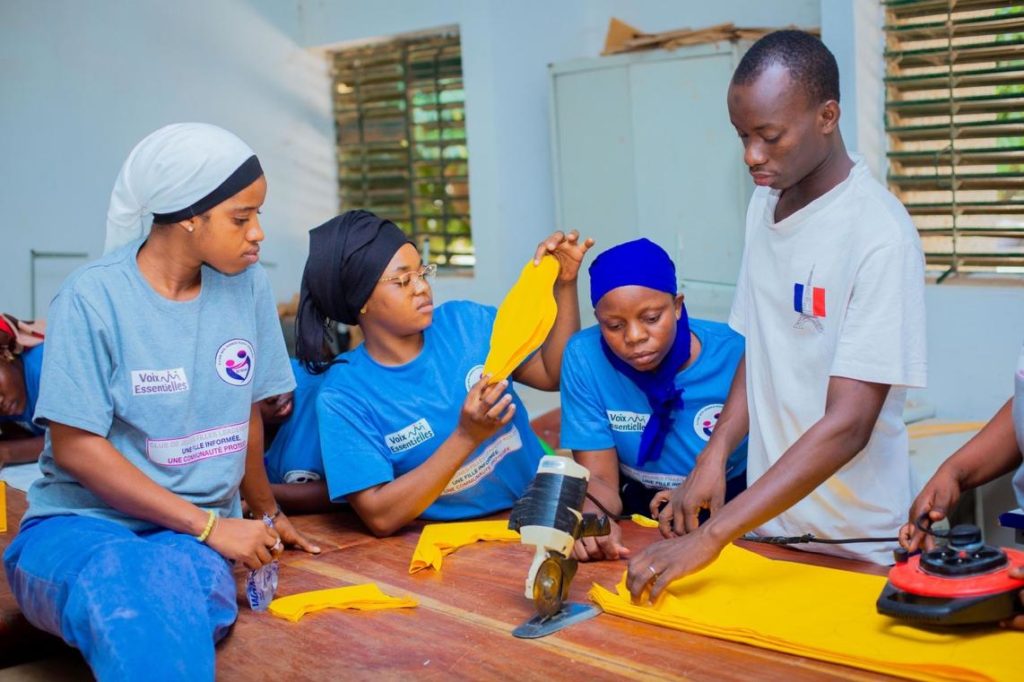Digital health in West Africa: what key factors to consider for the strengthening of ecosystems promoting digitalization?

In collaboration with the Transform Health coalition and with the aim of building a network within French-speaking African countries, efforts have been initiated to take stock of digital health in the region.
To this end, preliminary surveys were conducted in Senegal, Benin and Mali which revealed a number of findings including the lack of a legal, political and regulatory framework for digital health; a predominance of civil society organizations in the establishment and use of digital platforms; the lack of coordination between the many existing initiatives; low digital literacy at all levels (decision-maker, service providers and populations) and a lack of consultation at the regional level despite the notorious commitment of regional organizations such as WAHO (West African Health Organization) in digitalization.
The adoption and use of digital health systems across West Africa requires carrying out a set of key actions to strengthen the ecosystems in favor of digitalization.
On the occasion of the Digital Health Week, several actors involved in digital health in West Africa co-author this article to share their perspective on three levels: the essential functions of civil society, the imperative commitment of decision-makers for a change in policy and the importance of coordination and harmonization of practices and technologies.
5 reasons why to keep mobilizing civil society
Recognize their pioneering role
International and local NGOs are mostly at the origin of the work done in the field of digitalization in French-speaking West Africa. Their efforts so far have created a base from which national programs can be strengthened to accelerate the achievement of the Sustainable Development Goals.
Access communities on the last mile
Access to health services by populations living in the last mile, the poorest populations residing in urban areas as well as those in conflict zones, remains one of the greatest challenges to be resolved in terms of development. Civil society organizations continue to be best placed to support government efforts to accomplish this difficult mission.
Open up to social entrepreneurs, new development partners
The development model as we know it is changing with the entry into the sector of new players such as social entrepreneurs. To take advantage of this new dynamic, we recommend more engagement on the part of traditional development actors with these new private operators who serve a mission of public interest. We could cite the example of IT4LIFE, a social and solidarity economy company based in Dakar, founded specifically to support civil society in its digital transformation and develop digital tools to strengthen the impact of programs, particularly in the context of humanitarian response in West Africa.
Meeting accountability commitments
Citizens, being at the center of digital health, must understand the different contributions of digital tools to health and support this transformation. The digitization of health is an issue that involves all stakeholders, from the design to the implementation of policies and programs so that they are fully inclusive.
Compliance with the principles of accountability is a key indicator. Beyond the rules imposed by the donors as well, we observe that the communities insist that each other respect their commitments. Although the role played by civil society organizations in this delicate task remains sensitive, they are in the best position to ensure the watchdog role.
Building ecosystems on the “bottom-up” approach
If the top-down approach has advantages, for example to drive a vision, put in place regulatory frameworks and control data governance, ecosystems are often formed in bottom-up mode, by the effect of sharing and capitalization of solutions and synergies between organizations. Among the organizations that have initiated, in this dynamic, activities to strengthen ecosystems for digitalization at the national level, we can cite Path, Terre des Hommes, IT4Life and Kaikai who co-founded the e-Health Community Senegal , and more recently the Baobab Institute and the Speak Up Africa organization which, in partnership with the Transform Health coalition, started the West Africa digital health network (ReSAF ).
For the commitment of decision-makers
Prioritize data governance
In all sectors, and particularly in the health sector, technology is changing rapidly and policies must follow. To create this enabling and sustainable environment, digital transformation and health data governance issues must be a priority for governments. Digital health approaches must align with national health strategies and priorities to strengthen health systems.
Seize the opportunities of multisectoral approaches
The key players involved in the digitalization of health, who engage in multisectoral approaches, promote peer learning, the sharing of experiences, and good practices. This multisectorality makes it possible to strengthen advocacy actions towards decision-makers in order to better prioritize data governance but also to directly involve healthcare professionals who are on the front line and use digital tools to treat their patients.
Multi-stakeholder engagement is also an opportunity to capitalize on the participation of different stakeholders in strategic events such as the World Health Assembly (WHA) or the United Nations General Assembly and to call on decision makers to action. These events recall the importance of achieving the Sustainable Development Goals, and in particular Goal 3, aimed at access to health for all, and also offer an unprecedented platform for highlighting the importance of digitization of health systems.
Mobilize financial resources
Advocacy with decision-makers also aims to support resource mobilization efforts, because in some contexts digitalization is a reality, but actors are still faced with a lack of financial resources. For a broader investment in the digitalization of health systems, governments must prioritize the increase of national health-related financing and coordinate their actions with international organizations.
Digital health: a human-centered technological challenge
Improve technology coordination
In many countries, and not just in West Africa, digital health is still an amalgamation of various solutions, initiated and maintained under the responsibility of different actors. At this stage, these different solutions are not organized under an integration concept or according to a technological vision for the overall system. To move towards a coherent and robust system architecture, it is therefore necessary to improve coordination between the various project leaders, managers and departments in order to then be able to approach better technical integration.
Use international norms and standards
To guarantee robust architectures, it is necessary to rely on existing interoperability norms and standards. This makes it possible to exchange between the different systems and therefore to develop the architecture without having to modify the different solutions used. communities like IHE , OpenHIE and standards like FHIR have proven their effectiveness in other countries. For West Africa, the challenge is to harmonize the framework and regulations to facilitate partnerships between public and private actors in the sub-region, with a common guide for the selection and validation of these standards. Sharing the same standards also makes it possible to form local communities of practice and build localized expertise, as close as possible to contexts and users.
For common goods (global goods) of digital health adapted to the West African context
Digital health decision makers and operators are faced with the multitude of tools that have been successfully developed and deployed, and some have been scaled nationally. The existence of these “global goods” should make it possible to avoid recreating the wheel, and to rely on systems that have been tested, evaluated and validated by health professionals. However, for tools that are benchmarks in other regions of the world, it is necessary to ensure that adaptations to the West African context are taken into account. This reinforces the need to build a network of technicians, recognized in their sector and bearers of excellence, who are able to develop the necessary adaptations and contribute to the inclusive deployment of these solutions. This local expertise is essential to the emergence of Made in West Africa public goods .
Create a public-private ecosystem for implementation and maintenance
The development of digital health in West Africa is strongly supported by partners who operate with the financial support of donors. Programmatic and funding cycles do not always allow for business continuity. The question arises of partnership formats to ensure the sustainability of solutions. It is also necessary to ensure capacity building and knowledge of Global Goods, norms and standards, architectures for health, integration and deployment approaches. These needs exist on the side of Ministries or government agencies, but also service providers and local and regional solution integrators. Sustainable ecosystems are based on public-private partnerships, aligned on a common vision, serving the implementation and maintenance of global goods in digital health.
Conclusion
The harmonized and scaled adoption of digital health systems in West Africa relies on ecosystems of a new nature. Built top-down under the leadership of decision-makers and bottom-up by the action of actors close to the field. Guided by common norms and standards derived from good practices and adapted to the local and regional context. Committed to the use of global goods and based on a public-private partnership approach.
The network of digital health in West Africa (ReSAF) is thus an initiative that brings together digital experts, health professionals, civil society and organizations in order to be able to coordinate actions that will aim to amplify stakeholders’ efforts in digital health and facilitate the implementation of digital tools within health systems.
Finally, we do not forget, behind the technological challenges, digital health is above all centered on the human. The caregiver-patient relationship, health coverage for all and everyone’s well-being are at the heart of our collective action.
How to join the ReSAF?
- More information on the Digital Health Network in West Africa (ReSAF): Sign up for ReSAF here
- More information on the e-Health community in Senegal and how to join here: www.esantesen.org
About the co-authors
Baobab Institute www.baobabinstitute.org
The Baobab Institute is a platform that focuses on 3 fundamental areas for the post-covid era including localization, digitalization and entrepreneurship for development. Among our founding members, we count renowned experts and champions of global health who have contributed substantially to the progress made in family planning in French-speaking West Africa. We intend to leverage this expertise to accelerate the progress of the global FP movement in the region.
Speak Up Africa www.speakupafrica.org
Based in Dakar, Senegal, Speak Up Africa is an advocacy non-profit organization dedicated to catalyzing leadership, driving policy change and raising awareness for sustainable development in Africa. Through its platforms, and with the support of its partners, Speak Up Africa ensures that policymakers meet implementers; that the solutions are highlighted and that each sector, from citizens to civil society, including technical and financial partners and companies, actively participates in the dialogue and strives to take concrete actions in favor of public health and of sustainable development.
Kai-Kai www.kaikai.dev
We are a team of digital development advisors and offer strategic and technical advisory services to the private sector, donors, implementing partners and NGOs. We respond to local needs by co-creating high-impact programs, building local relationships and capacity, and leveraging partnerships with the private sector. Kaikai is co-founder of the e-Health Community (Senegal).
IT4LIFE www.it4life.org
A solidarity digital services company, IT4LIFE supports the digital transformation of the non-profit sector in Africa and France. Born in Senegal in 2017, the company recognized as a public utility has carried out nearly 140 projects in more than 20 countries, with a passion for data collection projects for programs and the structuring of health information systems. IT4LIFE is a founding member of the Tech For Good Coalition (France) and co-founder of the e-Health Community (Senegal).


